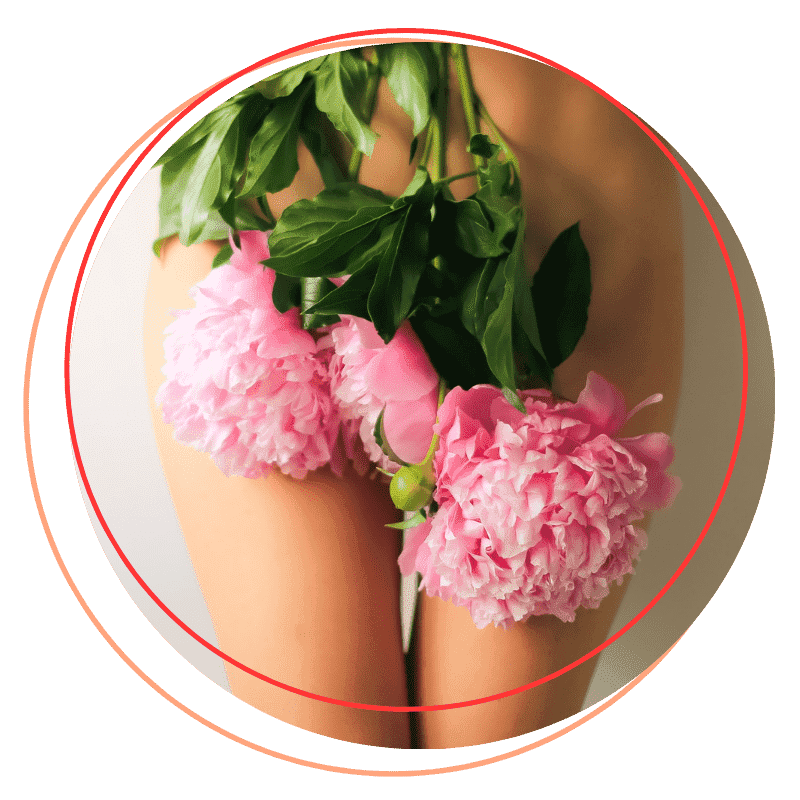PCOS is one of the most common reproductive health issues – affecting 1 in 10 women globally. However, it is also one of the most misunderstood and misdiagnosed. Not many people realise that there are actually 4 types of PCOS and each one comes with its own combination of symptoms – and each should be managed slightly differently.
In our 6 Week PCOS Course, Nutritionist and Hormone Health Expert Le’Nise Brothers dives deep into the four types of PCOS and teaches you how to manage each one through food and lifestyle – but first, let’s explain what they are…
High Androgen PCOS
You might not be familiar with the word ‘androgen’ but you’ll certainly know one of the most talked-about androgens in our body – testosterone. Androgens are essentially a group of hormones that are generally responsible for the development of ‘male’ characteristics. People of all genders have androgens, but the levels tend to be higher in men.
Some of the classic signs of PCOS are actually indicators that you have High Androgen PCOS specifically. Oily skin and acne can be pretty common – especially along the jaw, back and chest. Unwanted body hair can be another issue that people with PCOS have to contend with – and if that hair is coarse and dark around the jaw and chest it could be a sign that you are battling High Androgen. Whilst you may have more hair than you would like on your body, it’s not unheard of to experience hair loss and male pattern baldness.
If you have this type of PCOS, you might find that you also have some of the other symptoms associated with the other PCOS types, but your high androgen symptoms are probably the most obvious. These symptoms can have a huge impact on your mental wellbeing and self-esteem. Unfortunately, it is also a PCOS type that is highly impacted by cortisol levels – aka stress. It’s a vicious cycle, where stress increases cortisol levels and high cortisol levels can then increase androgen levels – so your mental health is just as important as your physical health when it comes to PCOS.
Think you may have High Androgen PCOS? Join our PCOS Course to learn how to manage your symptoms and improve your fertility.
Insulin Resistant PCOS
Insulin resistance is a common feature of the majority of the PCOS types – but do you know what it actually means? Let’s do a quick biology lesson.
In a nutshell, insulin resistance means that the cells in the muscles, fat and liver don’t respond well to receiving insulin produced in the pancreas. This means that these cells are unable to use the glucose in your blood for energy. This creates a vicious cycle where the pancreas makes more insulin to help move glucose into the blood and the cells continue to resist this insulin. This leads to high insulin levels as well as a bunch of sugar left in your blood. Eventually, the cells start to ignore these signals and the pancreas isn’t able to produce as much insulin, this is when you’re at risk of type 2 diabetes.
High insulin levels and insulin resistance is noted in 50-70% of PCOS patients and can cause or exacerbate high androgen levels and vice versa. The high level can cause the ovaries to produce more androgen, which can lead to irregular ovulation and periods – another very common symptom of PCOS. Another sign that you could be facing Insulin Resistant PCOS is a seriously sweet tooth. The chaos of your blood sugar levels can make you crave sweet foods and also cause sudden energy dips – and even fainting in extreme cases.
Think you may have Insulin Resistant PCOS? Join our PCOS Course to learn how to manage your symptoms and improve your fertility.
Inflammatory PCOS
This type of PCOS does exactly what it says on the tin – it’s driven by chronic inflammation. Inflammation always sounds like a negative when it comes to our health but it is actually something we want to happen – especially if we are sick or injured. It’s responsible for helping our immune system fight bacteria and viruses and heals cuts and wounds. However, you can have too much of a good thing and when we are chronically inflamed, our immune system thinks our body is under attack, When this happens it starts to damage the cells in our bodies.
With Inflammatory PCOS, we see that chronic levels of low-grade inflammation can have a dramatic impact on our hormones. In particular, it can increase androgen levels and have a negative impact on ovulation. Unlike other types of PCOS, you don’t see insulin resistance – so focusing on blood sugar won’t be as effective here. Instead, you need to focus on reducing inflammation through your diet.
Think you may have Inflammatory PCOS? Join our PCOS Course to learn how to manage your symptoms and improve your fertility.
Post Pill PCOS
The irony of Post-Pill PCOS is that so many people are put on hormonal contraception to regulate their periods (often masking PCOS for years!) But the pill not only hides the signs of PCOS, but it can also actually trigger it.
You may have found that your menstrual cycles and periods were normal and regular prior to going on the pill and since you’ve been taking it or since coming off, you’ve started experiencing some of the PCOS symptoms we mentioned above – craving sugar, dark coarse hair where you don’t want it, to name a few. But why does this happen?
When you take the pill, it suppresses communication between the ovaries and the brain, which stops ovulation. At the time, if you’re trying not to get pregnant, this might be just what you want. However, after coming off the pill this suppressed communication can persist, leading to your period going AWOL. Obviously, if you are coming off the people because you’re ready to have a baby – this is a big problem. Also, there may be a rise in androgens after coming off of some forms of the birth control pill.
Think you may have Post Pill PCOS? Join our PCOS Course to learn how to manage your symptoms and improve your fertility.
This is simply a high-level overview of the four types of PCOS – to diagnose fully, it’s always best to do a blood test and speak to an expert. Our Understand You Package comes complete with an at-home blood test, which will give you the information you need to make impactful next steps in your journey to taking control of your PCOS.
You can find more information on our 6 week course and all of our packages right here.





